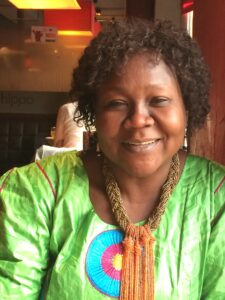Rethinking disaster preparedness through everyday survival, care and resilience strategies
Rethinking DRR in its everyday and social dimensions through the concepts of gender and resilience
Humanitarian or social context and issues
Disaster risk reduction (DRR) still has two different interpretations: the so-called ‘conventional’ one, which focuses on anticipating hazards and the perceptions of populations exposed to them; and the other, more marginal, which focuses on reducing vulnerability and supporting the resilience of societies to prevent a natural phenomenon from becoming a disaster. The project aims to apply the second interpretation in the context of Chad, which has been plagued by recurrent crises despite the presence of humanitarian and development actors for decades. The aim is to highlight the survival and adaptation strategies of affected populations, particularly through reproductive work. Unpaid domestic and care work, often carried out by women, helps to maintain family structures on which productive work depends. These everyday strategies are the often invisible underpinnings of diverse, accessible and meaningful resilience initiatives.
The study has three research objectives:
1) To conceptualise the link between the everyday resilience of populations exposed to hazards, multiple crises and disaster risk reduction (DRR);
2) To compare humanitarian and development interventions in the way they address social determinants of vulnerability, including gender inequalities;
3) Articulate ways of reforming DRR that are more rooted in everyday experience and take into account the intersectionality of vulnerability factors and reproductive labour.
What can we learn from integrating notions of reproduction, care and gender equality in the study of resilience to risk?
Scope and methodology
Disaster risk reduction is a very distinct sector in Chad, with little integration with other areas of intervention such as humanitarian aid, climate change adaptation and social action. Initiatives labelled as DRR are often not based on community resilience strategies and are instead associated with interventions in response to sudden and extreme events (flash floods, floods), which receive very little institutional support. To explore this context, the project is based on an empirical research approach and a mainly qualitative methodology. Semi-structured interviews will be conducted in N’Djamena with representatives of governmental and non-governmental institutions and civil society. Field visits will be made to the south of the capital to carry out observations and interviews with representatives of local authorities, in particular the health and social delegations.
The scientific benefits of research for humanitarian and social actors
Reducing the risks associated with extreme hydrometeorological events is becoming a growing priority for humanitarian and development actors in Chad, given the climate projections in the latest IPCC report. This study provides food for thought and suggests ways to reform the public policies of government institutions responsible for civil protection and natural resource management. Given the lack of research and clarity on the role of government institutions in flood risk reduction, the research findings provide a better understanding of what has been put in place since the National Risk Management Plan expired in 2020, what the Multi-Hazard Contingency Plan recommends, and what the needs of the various institutional actors are.
Research has highlighted the role of marginalised and vulnerable populations in the face of natural hazards, who act as first responders in the event of a disaster. In addition, these populations are constantly adapting to “everyday risks” such as economic pressures and social exclusion. Their survival and coping strategies, as well as their reproductive work (or ‘care’), are the often invisible underpinnings of many accessible and meaningful resilience initiatives.
However, the links between reproductive work and resilience before, during and after crises remain under-recognised, under-theorised, particularly in the French-language literature, and rarely systematically integrated into disaster risk reduction (DRR) programmes.
Biography
Virginie Le Masson is an Associate Researcher at the ODI and an independent researcher. Her work focuses on the social aspects of sustainable development, with a particular focus on gender inequalities and risks of violence in regions affected by environmental change and disasters. She received her Ph.D. in Geography from Brunel University, London in 2013 and has co-edited a book on climate change and gender and power dynamics, published by Routledge.

The research was carried out with the participation of BENOUDJI Colette, coordinator of the NGO Lead Tchad and national expert on social issues and resilience to climate change.
